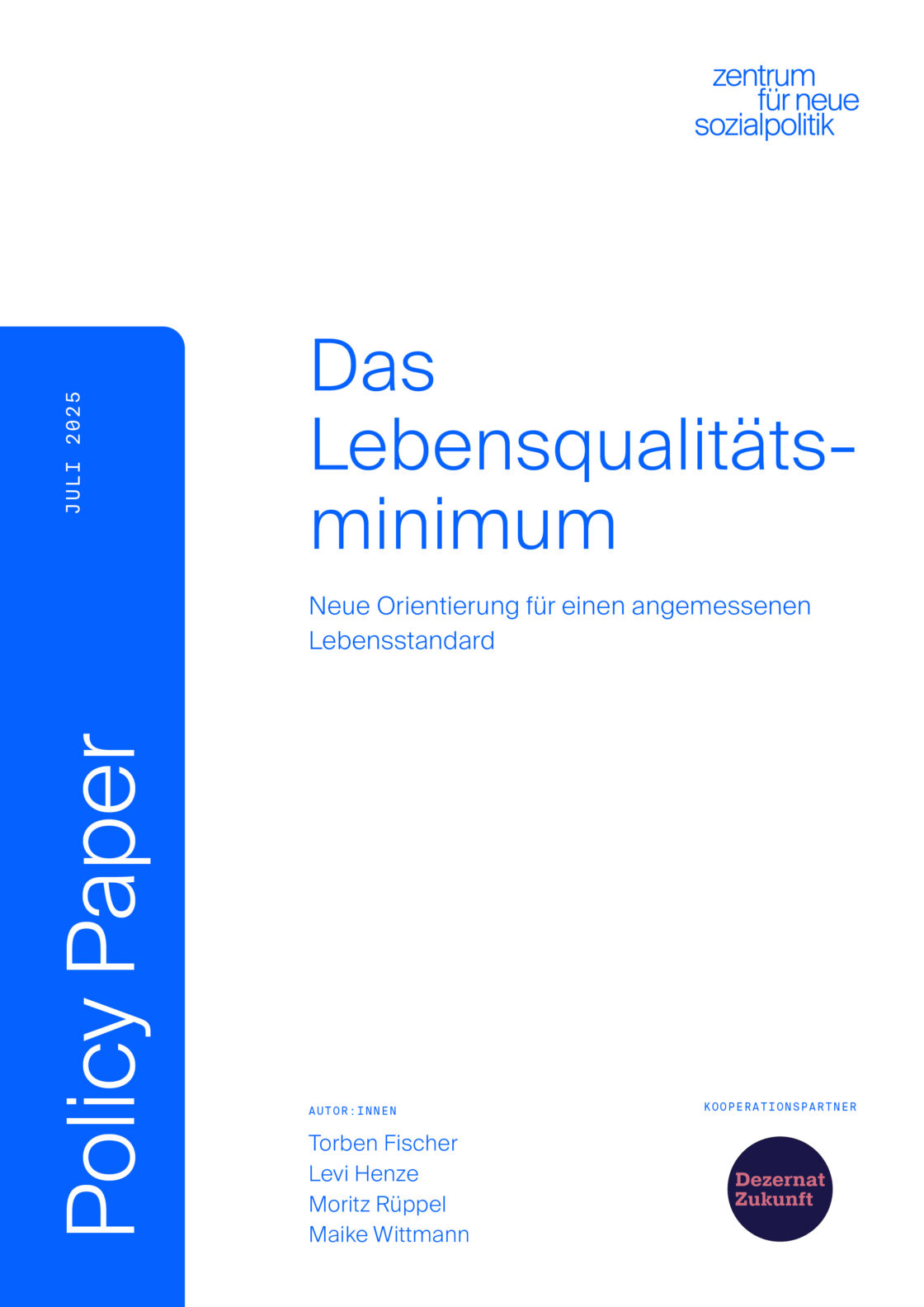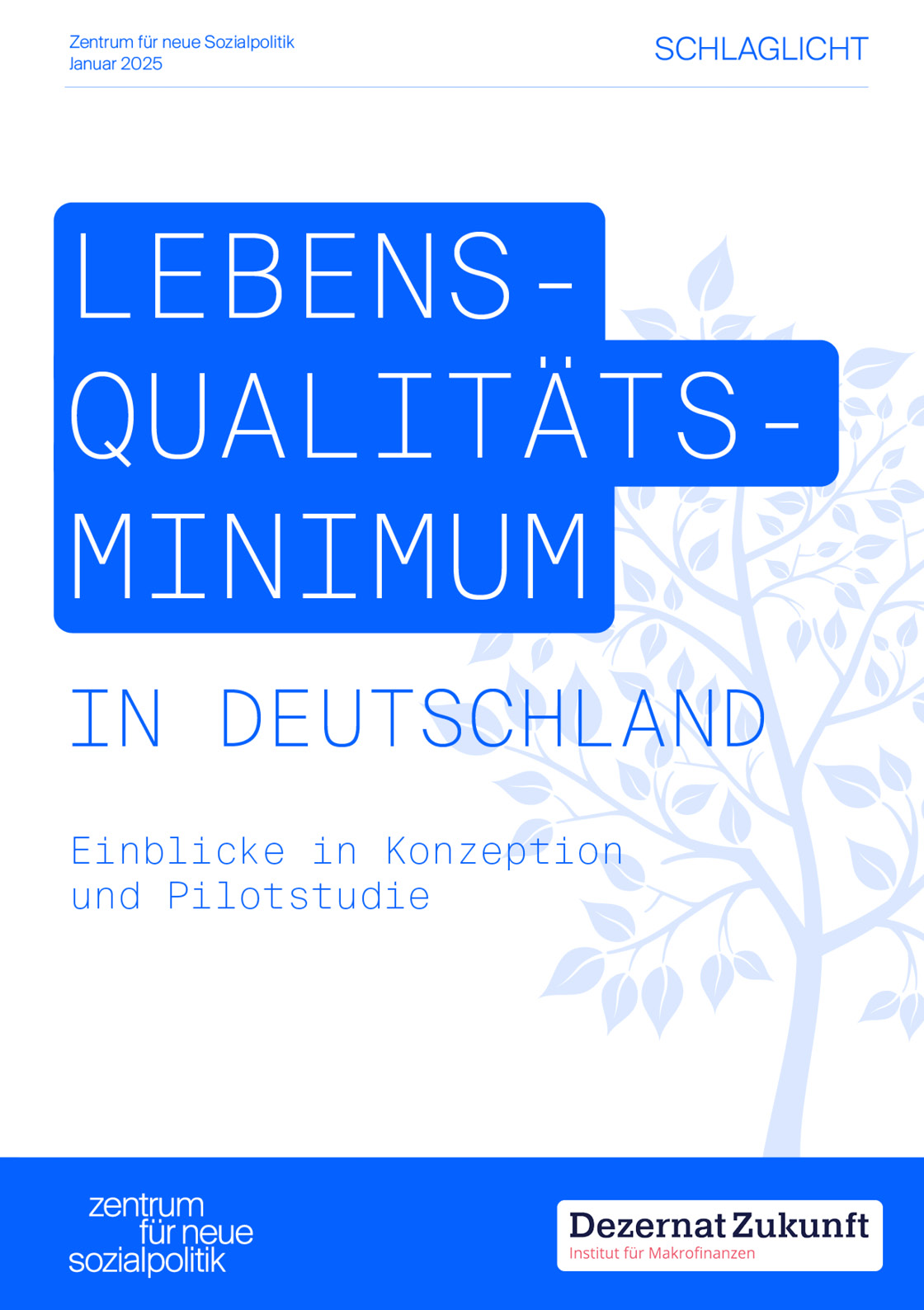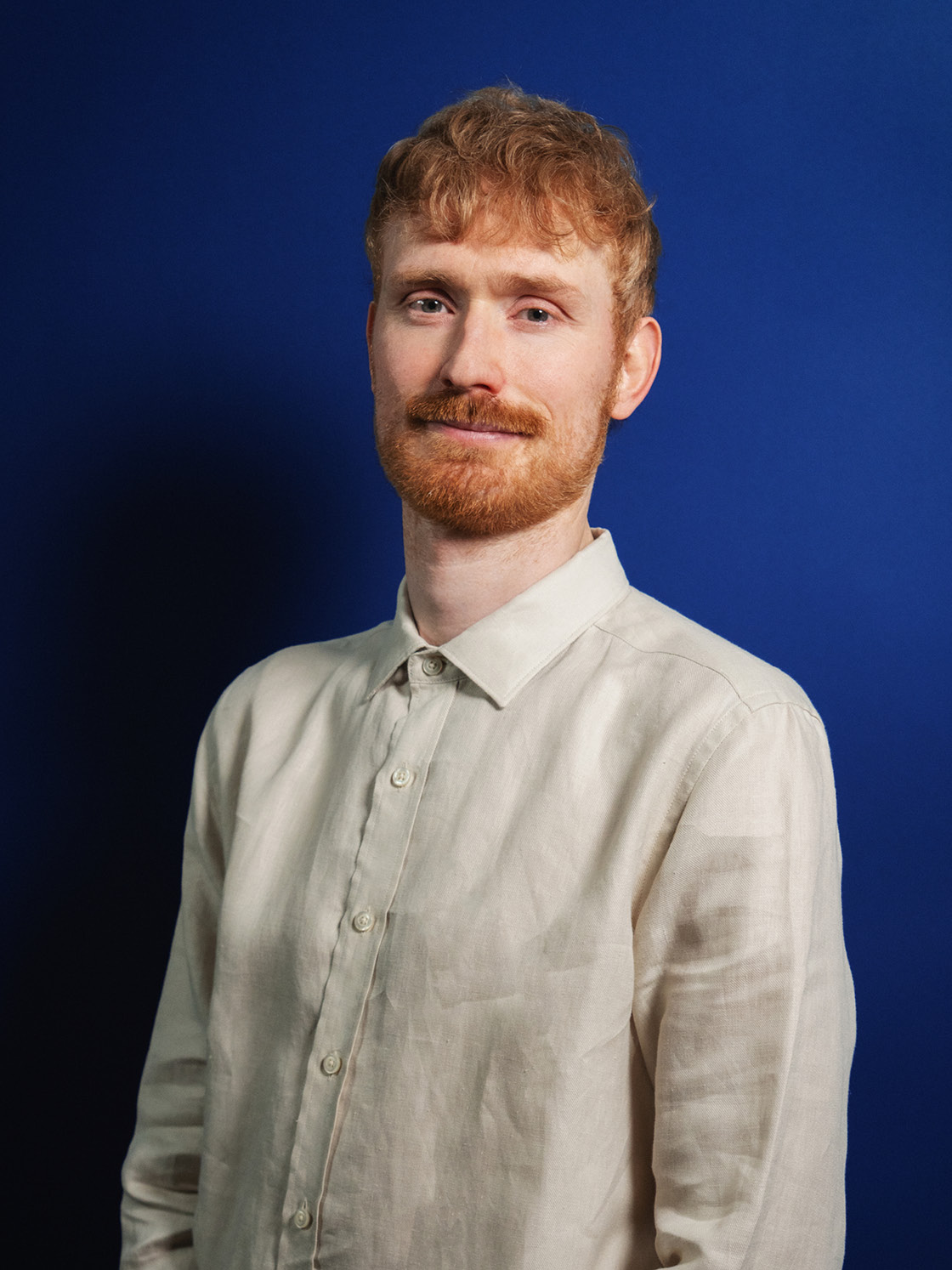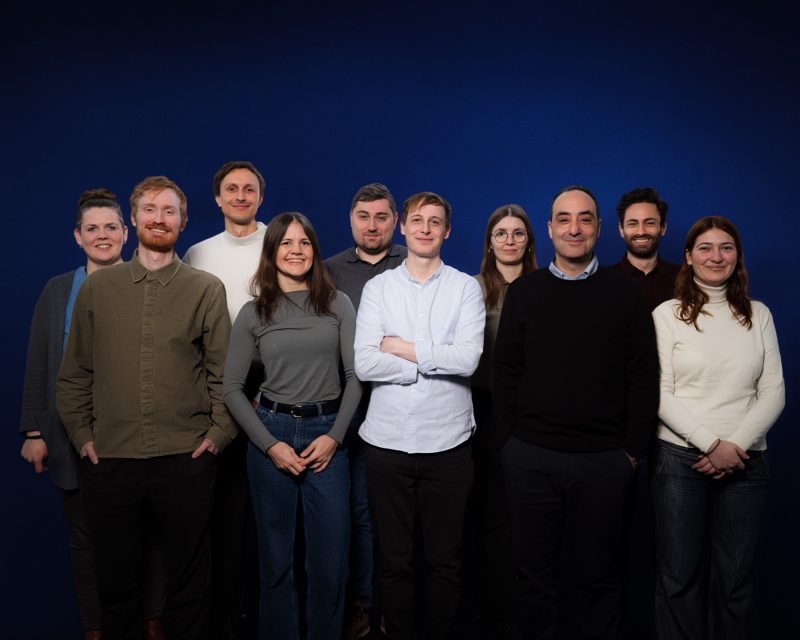- Project
- Opportunities
Minimum Living Standard

Published
April 24, 2025
Methodology
Exploratory Study
Status
completed
Background
Increased needs due to crises and challenges in the wake of socio-ecological transformation are placing a significant burden on many households in Germany. It is generally recognised that a minimum standard of living is essential in order to lead a self-determined life and participate actively in society. Nevertheless, there is no general consensus on what exactly such a standard of living should look like – and how additional needs resulting from the inclusion of transformation and sustainability aspects will affect it.
Political and social discourse often draws on relative concepts such as social classes, income groups or the at-risk-of-poverty threshold. However, these are based on the current distribution of income and thus only identify relative needs. Unlike in the United Kingdom (minimum income standard), for example, there are currently no robust surveys in Germany to answer the question of what the social consensus is on the actual requirements for an ‘adequate’ standard of living.
Project goals
The goal of the Minimum Living Standard is to determine the financial requirements for a self-determined life with social participation, taking into account sustainability and transformation aspects. This also raises the question of the appropriate survey methodology for a sustainable minimum quality of life, which should avoid arbitrary assumptions for different areas of consumption as far as possible. Focus group workshops offer a deliberative element that makes it possible to develop and reflect a broader social consensus on actual needs.
In the long term, the figures thus determined for a sustainable minimum quality of life can serve as a central orientation framework for reviewing planned or implemented policies in the social or climate policy area to determine the extent to which they actually affect the possibility of an adequate standard of living. In this way, for example, the societal and social consequences of necessary policies in the context of socio-ecological transformation can be assessed, evaluated, discussed and communicated.
In the future, the results of such a study can help to determine the need for political action and the scope for action in shaping a sustainable welfare state and structural change towards climate neutrality.
The question of what constitutes a minimum standard of living is of central importance for the design of our welfare state. To ensure its future viability, it is essential to take into account the additional burdens that will arise in the course of the socio-ecological transformation.
Publications
- Policy Paper
The Minimum Living Standard
When it comes to citizen's income and minimum wage, there is often a lack of realistic reference values. Data is needed on what people need to live a decent life. Greater participation can make needs visible and legitimise decisions.
Read now
- Spotlight
Minimum Living Standard in Germany
What do people need financially to live comfortably? The Minimum Income Standard (MIS) in the UK attempts to answer this question: expert-supported focus groups create a fictitious basket of goods and services, the value of which is then quantified. This results in a budget for a comfortable life. So far, there are no comparable figures for Germany. The Minimum Living Standard project aims to change this.
Read now
Methodology
In contrast to the statistical methods that usually dominate in this area, the project is developing a methodology with deliberative elements that avoids assumptions and arbitrary settings (such as those made when determining standard needs) as far as possible. The method centres on workshops with focus groups representing different types of households, in which a consensus is to be reached on the requirements for a sustainable minimum quality of life across various areas of consumption. The methodology developed will be tested for its feasibility using a number of household groups as examples.
The method designed and tested in this way will also be discussed in relation to other approaches. The British Minimum Income Standard (MIS) approach will be used as a benchmark. To this end, the baskets of goods developed in the MIS will be ‘translated’ for the situation in Germany and compared with the results for the minimum subsistence level.
Team

Moritz Rüppel
Head of Policy & Projects
Moritz Rüppel heads the Policy & Projects division. His work focuses on the political and strategic orientation of the department, proactively setting the agenda for the topics it addresses, and transferring research findings to the parliamentary and pre-political arena. Moritz also represents the department in dealings with political actors.



Levi Henze



